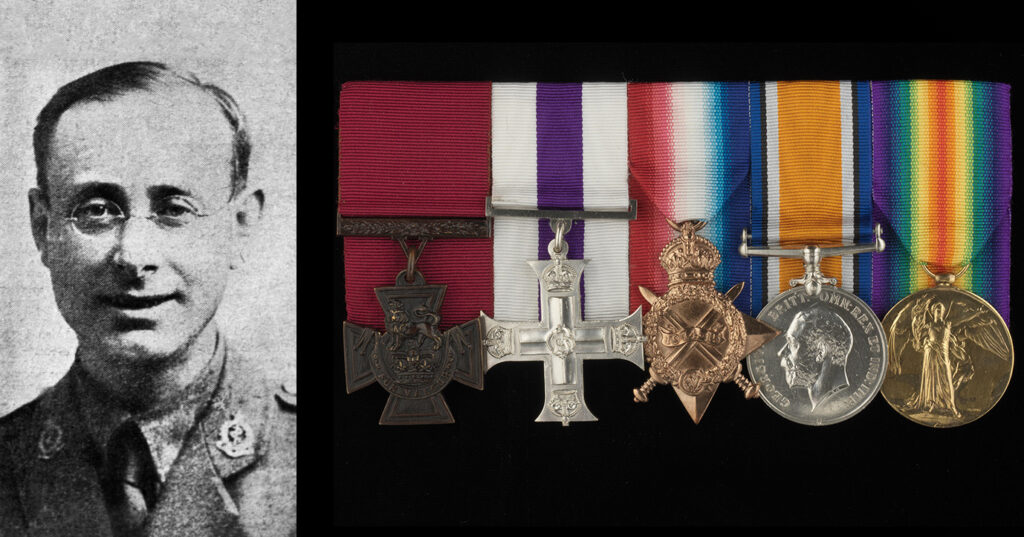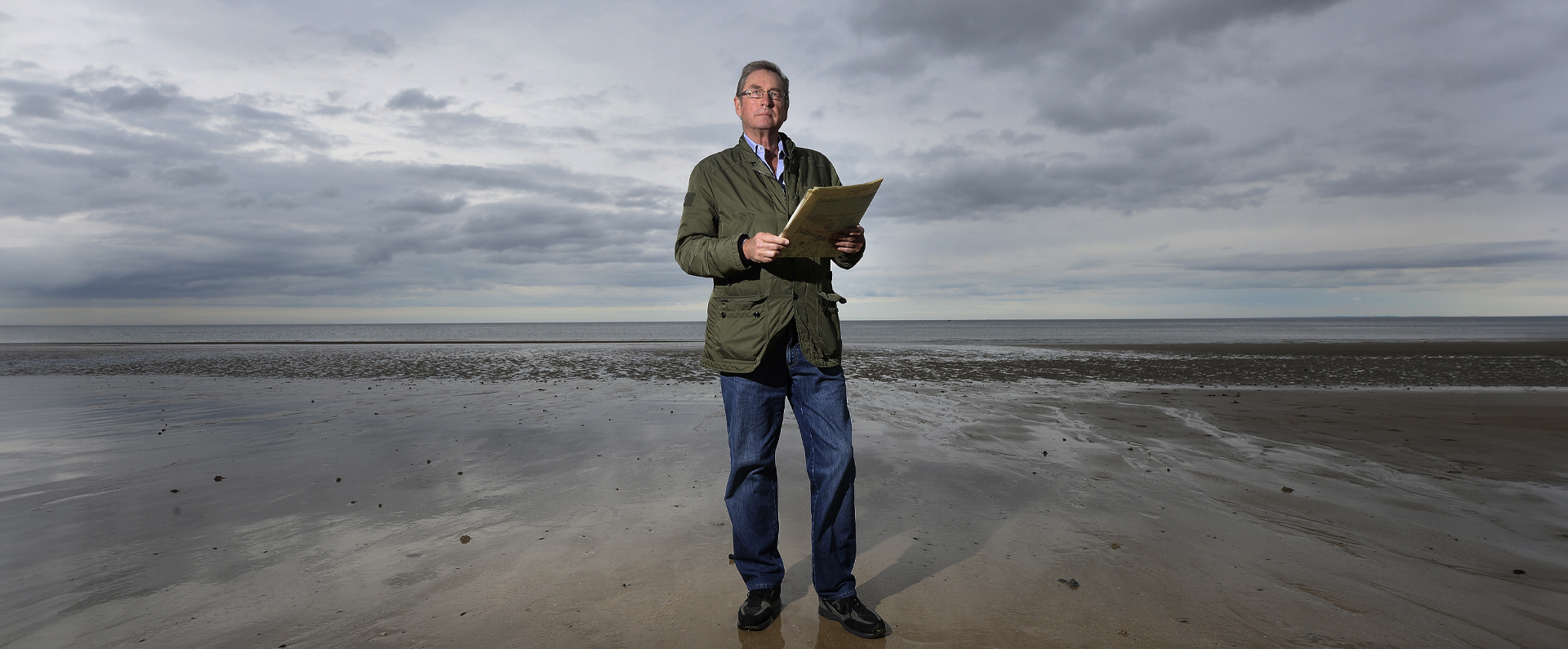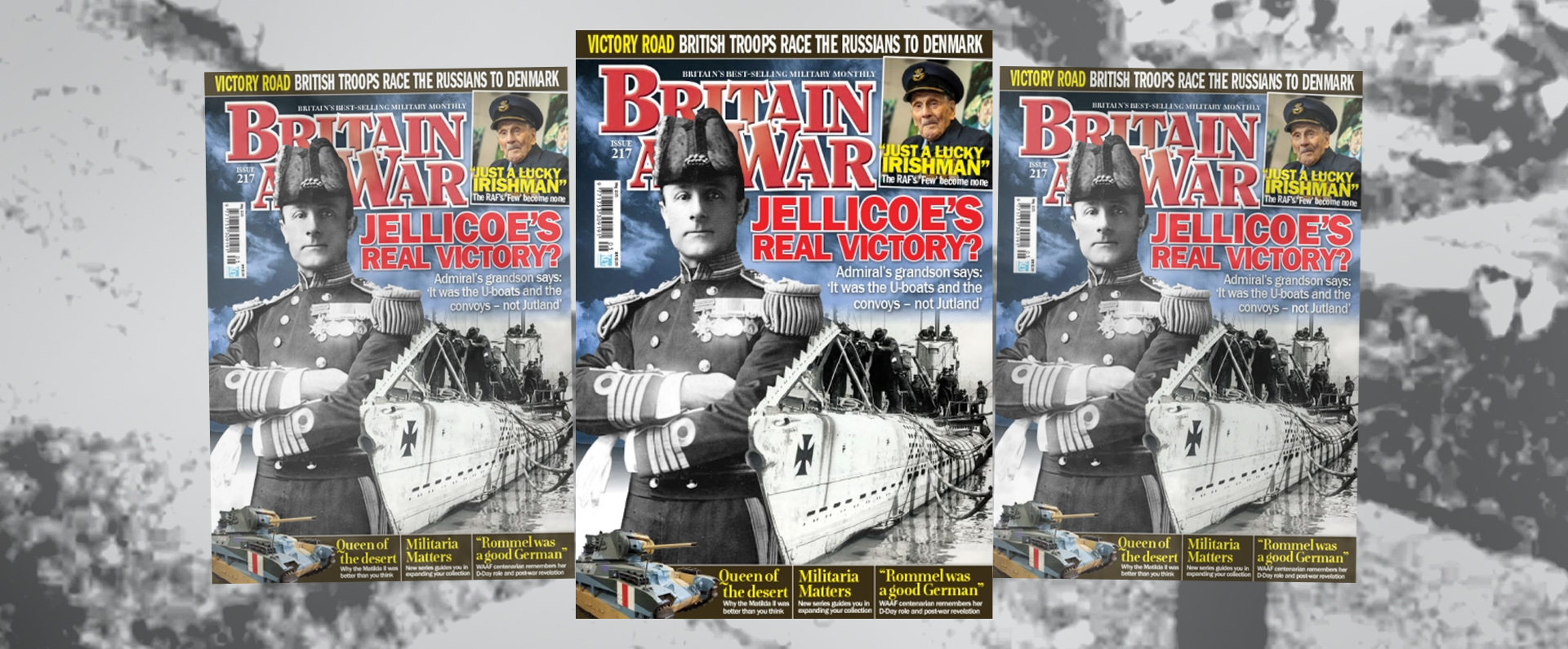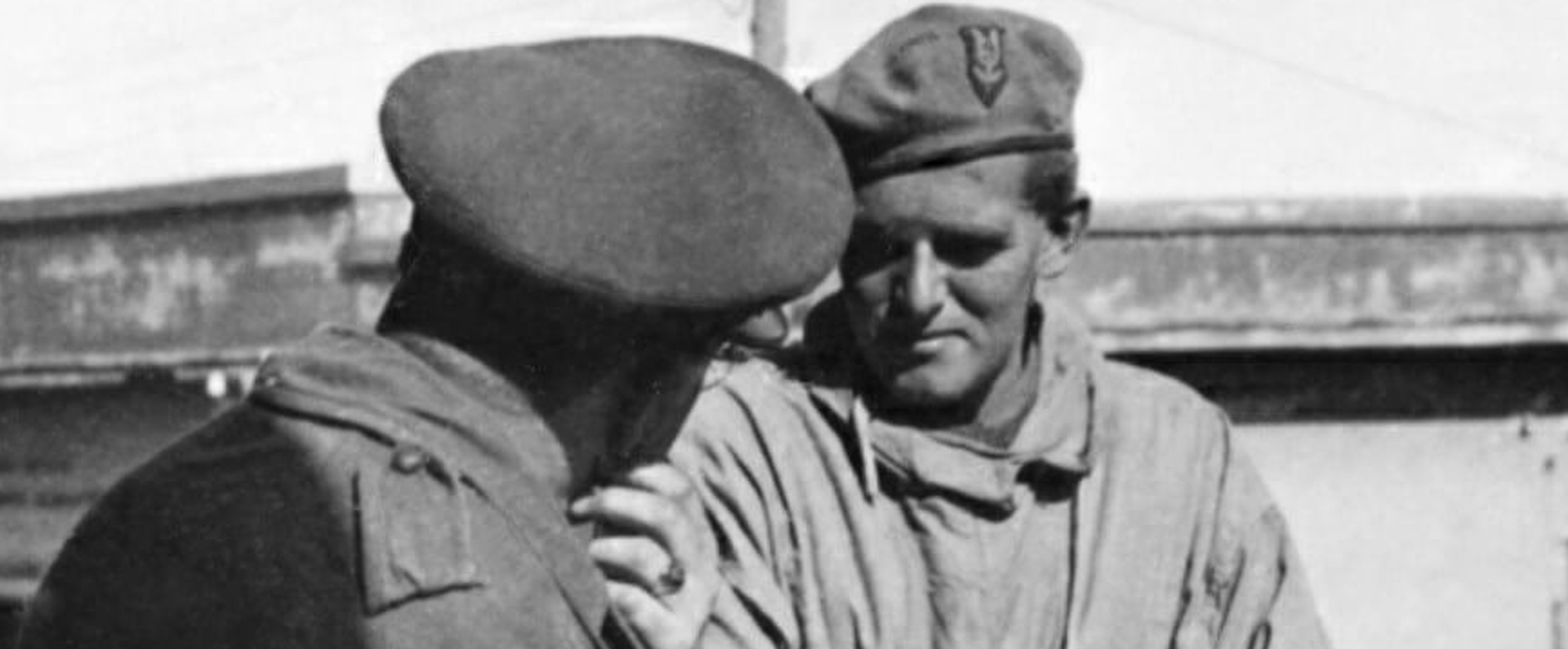
First published in Britain At War in November 2021.
Captain Harold Ackroyd VC, MC, MD
The Royal Army Medical Corps (RAMC) has a tradition for producing some of the bravest and most selfless of men but few in the Corps’ prestigious history have matched the dedication of Captain Harold Ackroyd.
Despite being an unlikely war hero – he was bespectacled with thinning grey hair, a stooped walk and served beyond his 40th birthday – Ackroyd was on two separate occasions recommended for the Victoria Cross (VC) for his gallantry during the Great War. On the first occasion, however, the recommendation was downgraded.
To his commanding officer, Lieutenant-Colonel B.E. Clay, Ackroyd was simply “the most gallant man I have ever met”. To the young soldiers from his battalion, he was an inspirational figure who repeatedly risked his life to tend to their wounds just yards from the front-line.
It is fitting that this month [November 2021] a new biography of Ackroyd is being published, written by his grandson, Christopher Ackroyd, and the historian, Edward (“Ned”) Malet de Carteret. The book, called White Feather to Victoria Cross, tells the full story of this courageous medic’s life and career for the first time.
My fascination with Ackroyd’s life results partly from the fact that I am the proud custodian of his gallantry and service medals, having purchased them privately from the family in 2003.
With great generosity, the family used the proceeds of the sale to endow an annual medical scholarship at Gonville & Caius College, Cambridge, Harold Ackroyd’s former college. In short, everyone was a winner from the sale and the family welcomes the fact that the Ackroyd medal group is on public display at the Imperial War Museum, London.
Harold Ackroyd was born in Roe Lane, Southport, Lancashire, on July 18, 1877. He was the son of Edward Ackroyd, the chairman of the Cheshire Lines & Southport Extension Railway Company, and his wife, Ellen. Harold’s descendants appear to have worked in the wool industry.
Young Harold, who was a bright boy, was educated locally at Mintholme College, Southport, and Shrewsbury School before taking a BA degree at Gonville and Caius College, Cambridge. After completing his studies in 1899 and then doing some travelling, he trained at Guy’s Hospital, London, gaining his MB (Bachelor of Medicine) in 1904 and his MD (Doctor of Medicine) in 1910.
In the run-up to the Great War, Ackroyd held several senior hospital positions before moving to Cambridge to start a career as a research scientist and academic. He also married Mabel Smythe, the matron at Strangeways Research Hospital, Cambridge, in August 1908 and the young couple went on to have two sons and a daughter.
On February 15 1915, he was commissioned as a temporary lieutenant into the RAMC at the age of 37. The RAMC had been formed in 1898 to provide medical care for British servicemen, particularly those injured in battle. Its members during the First World War included Captain Noel Chavasse, the only VC & Bar from the 1914-18 war and one of only three double VCs in the decoration’s history.
In July 1915, Ackroyd was sent to France attached as medical officer to the 6th Battalion, Royal Berkshire Regiment, 53rd Infantry Brigade.
Like many men of his generation, Captain Ackroyd had divided loyalties: he was a devoted family man who knew that his wife, Mabel, and their three young children needed him to survive the Great War if they were to enjoy future happiness together.
Yet, he had an immense sense of duty too and, as he served in France and Belgium for two long years at the height of the 1914-18 war, the repeated risks that he took made it clear that his commitment to his King, country and comrades was constantly endangering his life.
After promotion to temporary captain in 1916, he saw action in France. Initially, his battalion had success on the first day of the Battle of the Somme on July 1 1916 but on July 19 he was at the centre of the carnage at Delville Wood.
A three-day battle after an assault on one of the enemy’s strongest positions saw some 700 men wounded in the melée of artillery and machine-gun fire.
Under heavy shelling and sniper fire, Captain Ackroyd remained cool and methodical, saving many lives. No less than eleven officers singled him out for praise in written reports and he was recommended for the VC.
Despite the recommendation for a higher award, his bravery was recognised instead by the award of the Military Cross (MC), announced in The London Gazette on October 20 1916.
At one point, Ackroyd was “blown up” and despite surviving the explosion he was showing signs of immense strain. On August 11 1916, he was reluctantly invalided home suffering from nervous exhaustion.
In November 1916, a month after being passed as fit for duty by a medical board, Ackroyd was eager to return to France, re-joining the Royal Berkshires in December. His family had concerns that he was returning to the front-line too soon and they longed for him to have a safer role.
After a bitter winter that saw sporadic fighting, Ackroyd was given some leave with his family ahead of his 40th birthday but by the end of July 1917 he was in Belgium during the preparations for the Third Battle of Ypres (also known as the Battle of Passchendaele).
It was on the opening two days of Passchendaele, in those muddy Flanders Fields, that the Royal Berkshires saw terrible losses as they advanced along and close to the Menin Road as part of the offensive by 53rd Brigade, 30th Division. The attack on Glencorse Wood on July 31 and August 1, though courageous, was confused and poorly organised, as the 6th Berkshires advanced towards a well-prepared enemy, and into an area that was already thought to have been captured.
Ackroyd roamed up and down the line to treat casualties and was eventually awarded the VC for his gallantry over the two days. The citation for his decoration, announced on September 6 1917, stated:
“During recent operations Capt. Ackroyd displayed the greatest gallantry and devotion to duty. Utterly regardless of danger, he worked continuously for many hours up and down and in front of the line tending the wounded and saving the lives of officers and men. In so doing he had to move across the open under heavy machine gun, rifle and shell fire. He carried a wounded officer to a place of safety under very heavy fire. On another occasion he went some way in front of our advanced line and brought in a wounded man under continuous sniping and machine gun fire.
“His heroism was the means of saving many lives, and provided a magnificent example of courage, cheerfulness, and determination to the fighting men in whose midst he was carrying out his splendid work.”
However, by the time that his VC was announced, Ackroyd was dead: he had been killed by an enemy sniper at Jargon Trench while close to the front line, having set out to find and treat the wounded on August 11, 1917. He was one of seven men shot dead in a short period by enemy snipers and, at the time of his death, he was aware that he had, once again, been recommended for the VC.
Ackroyd’s posthumous VC was presented to his widow, Mabel, and their son, Stephen, then five, by George V at an investiture at Buckingham Palace on September 26 1917.
There were numerous tributes to Captain Ackroyd’s gallantry from comrades. Captain J.N. Richardson, one of his closest friends, wrote to his widow, saying “It’s the biggest loss this battalion has ever suffered and it’s nothing more or less than a tragedy for all of us. As you have probably heard before he was the most fearless man imaginable and to see him in his cool way picking up wounded and sending them off was a sight no one can ever forget. The hottest shellfire never stopped him going to a wounded man and the men used to simply stare in wonder at his bravery. In all fights he was worth a hundred men to us for morale’s sake….”
Alfred Clark, one of Ackroyd’s fellow officers, also wrote to his widow saying, “All our medical officers are wonderfully brave but your husband was quite in a class by himself.”
Captain Harold Ackroyd VC MC MD, who died aged 40, is buried at Birr Cross Roads Cemetery, near Ypres. On the centenary of his death, some 30 members of the Ackroyd family travelled from their respective homes in England, Jersey and Germany for a memorial service at his graveside.
The service on August 11 2017 was led by the Reverend Gillian Trinder, then the vicar of St George’s Church, Ypres. Some of the great great grandchildren contributed to the service and Christopher Ackroyd gave a eulogy on his grandfather’s life. The Last Post and the Reveille were sounded by Colonel Michael Taylor, the VC recipient’s great grandson-in-law. The party then went to the field below Glencorse Wood where Harold was killed and four of his great great grandsons planted a memorial plaque on the spot where he fell.
I commend the new book, White Feather to Victoria Cross, to readers of this magazine and, just to declare an interest, I have, in fact, contributed the Foreword to it.
The book ends with the words:
“This is the story of Harold Ackroyd VC. and his ancestors who were from humble origins, probably wool traders in Yorkshire. We hope this family history has shown that for all of us no matter what our social background, we are capable of achieving great things in life.
“We are immensely proud of our ancestor Harold, with his sporting, educational, professional, scientific and most importantly, military achievements.
“This profoundly exemplifies the determination that enabled him to develop his character into the family man with strong loyalties and principles who was capable of supreme and sustained acts of bravery…
“The fact that his memory and example live on into the 21st Century is a source of immense pride and satisfaction to all the family. We hope that his sacrifice will go on to inspire future generations of the family and the young doctors who have benefited from the scholarship in his name at Gonville and Caius College Cambridge since 2004.”
- White Feather to Victoria Cross by Christopher E. Ackroyd and Edward F. Malet de Carteret is published by Reveille Press and can be purchased in hardback for £17.99
Download a PDF of the original Britain at War article.
For more information, visit:
LordAshcroftOnBravery.com


